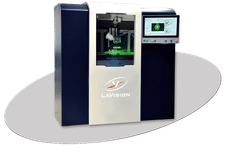Frost & Sullivan: Political Acceptance of Shale Gas as a Fuel Will Affect the Sensors Market for the Industry
Commercial viability of shale gas exploration and energy policies to influence opportunities for sensor manufacturers
The shale gas industry holds great promise for sensors, but it is heavily dependent on government acceptance due to the numerous environmental concerns (earthquakes, pollution) associated with fracking. With governments still being undecided on whether hydraulic fracturing can be conducted, and oil and gas companies not being certain about the feasibility of commercial shale gas production, the sensors and instrumentation market in the shale gas industry has remained small.
New analysis from Frost & Sullivan, Sensors Market in Shale Gas Industry, finds that the market earned revenues of $63.0 million in 2013 and estimates this to reach $106.8 million in 2020. Currently, wellhead, fracking and separation are some of the key applications for flow, level, pressure and temperature sensors in shale gas production.
“Companies have continuously invested in the broad automation sector and have adopted sensor solutions to improve efficiency and process variable monitoring, as well as reduce maintenance costs and the total cost of ownership,” said Frost & Sullivan Measurement & Instrumentation Senior Industry Analyst V Sankara Narayanan. “This is expected to drive the demand for sensors and instrumentation in the overall oil and gas industry and ultimately, in the shale gas industry as well.”
Sensors’ role in the shale gas industry is critical. For instance, sensors and instrumentation can be used to address several complexities in hydraulic fracturing such as fracture orientation, its distance and geometry, and lateral and vertical extent. Microseismic fracture-mapping sensors can enhance the accuracy of fracturing by providing details on seismic imaging, while sensors installed in the well provide data on fracture characterization during drilling. As more fractures open during the process, the sensors installed on the drilling device help to identify new drilling directions.
As shale gas activity is mainly witnessed in the United States and Canada, the market for sensors in shale gas is concentrated in North America. Therefore, the expertise of sensor manufacturers from the US shale gas industry can be leveraged to penetrate other regions. Sensor manufacturers could also position themselves as solution vendors rather than sensor component vendors to gain greater shares of the global market.
“Overall, the market for sensors in shale gas will get a boost when the current uncertainty regarding legislation, policy and commercial readiness is resolved,” noted Narayanan. “This will allow the oil and gas companies to establish the commercial feasibility of shale gas exploration across the world and thereby, engage in business with sensor manufacturers.”
Other news from the department business & finance
These products might interest you
Most read news
More news from our other portals
See the theme worlds for related content
Topic world Sensor technology
Sensor technology has revolutionized the chemical industry by providing accurate, timely and reliable data across a wide range of processes. From monitoring critical parameters in production lines to early detection of potential malfunctions or hazards, sensors are the silent sentinels that ensure quality, efficiency and safety.

Topic world Sensor technology
Sensor technology has revolutionized the chemical industry by providing accurate, timely and reliable data across a wide range of processes. From monitoring critical parameters in production lines to early detection of potential malfunctions or hazards, sensors are the silent sentinels that ensure quality, efficiency and safety.






























































